Fast growth but slow green transition
On the afternoon of July 31, at the seminar on Financial policy for green logistics development organized by the Economic - Financial Magazine, Mr. Tran Thanh Hai - Deputy Director of the Import-Export Department ( Ministry of Industry and Trade ), said that the logistics industry has a fast growth rate, averaging 14-16%/year, nearly twice as high as the GDP growth rate.
However, the industry is still developing quietly, lacking large-scale enterprises capable of leading the market. Meanwhile, the requirements for digital transformation and green transformation have gradually been recognized by enterprises, but actual implementation is still limited.
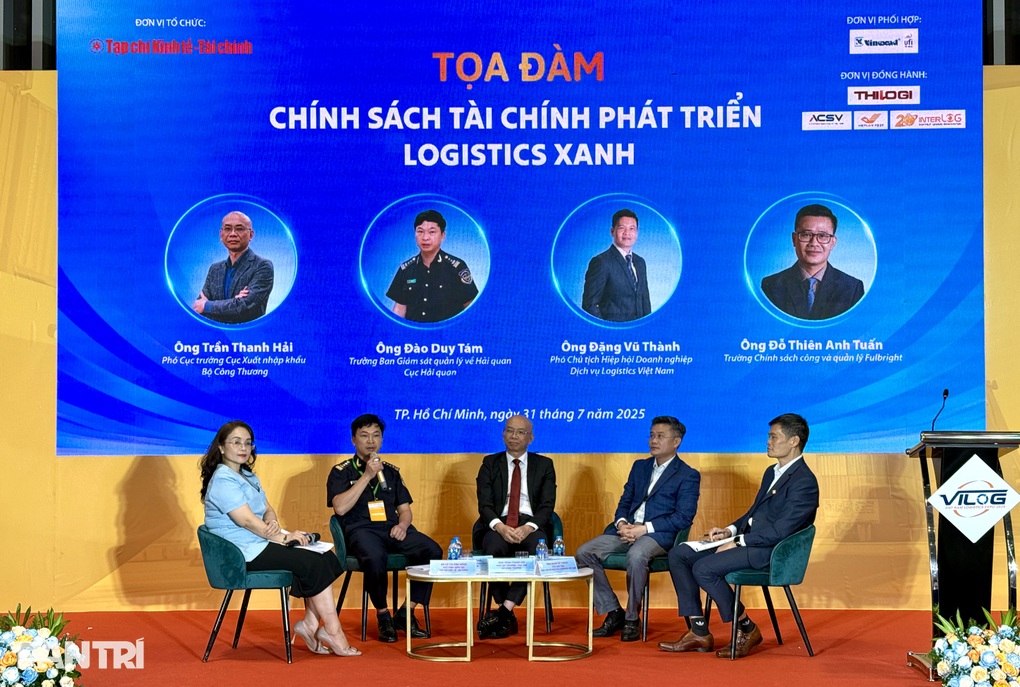
Speakers at the seminar on Financial policy for green logistics development (Photo: Nhat Quang).
Mr. Dang Vu Thanh - Vice President of the Vietnam Logistics Services Association (VLA) - said that green transformation is no longer a trend, but has been present in every daily activity of logistics enterprises globally.
In Vietnam, although some large enterprises such as Viettel Post, Tan Cang Saigon, Transimex... have started to apply ESG, implementing environmentally friendly solutions such as switching to water transport, investing in energy-saving equipment...
However, the majority of logistics enterprises, especially small and medium enterprises (SMEs) accounting for 95%, are still "stumbling" on the greening journey.
In the context of global efforts to reduce emissions and build sustainable supply chains, green transformation is not only a condition for market entry but also a factor that helps businesses improve their competitiveness, optimize long-term costs and contribute to national environmental goals.
Green transformation cannot be expected from businesses alone
Despite being aware of the inevitable trend, most Vietnamese logistics enterprises are still facing a series of barriers when implementing green transformation. For example, issues of capital, technology, policies and inter-sectoral coordination mechanisms.
According to Dr. Do Thien Anh Tuan, Lecturer at the Fulbright School of Public Policy and Management, the first bottleneck is the issue of “where is the money?”. While 95-97% of logistics businesses are small and medium-sized enterprises (SMEs), the green finance market in Vietnam is still very young.
As of mid-year, green finance accounted for only 4.35% of total credit, much lower than the expected minimum of 10%.
Banks are also having difficulty defining the criteria for “what is green” due to the lack of a unified classification system. The logistics industry in particular and the economy in general still lack a clear legal framework, and there is no system for measuring emissions and evaluating the effectiveness of green investments.
Besides, financial instruments such as green bonds, green fund certificates or green interest rate support are still underdeveloped, making it even more difficult for businesses to access conversion resources.
From a technological perspective, Mr. Tran Thanh Hai said that the conversion from gasoline-powered vehicles to electric vehicles, using LNG or hydrogen fuel cell vehicles still faces major obstacles due to high costs, unpopular technology and limited operating conditions.
For example, an electric tractor costs 4-5 times more than a vehicle using traditional fuel, which becomes a difficult problem for small and medium-sized enterprises when they want to make a green transition.
From the perspective of a business leader, Mr. Dang Vu Thanh, General Director of Southern Logistics Joint Stock Company (Sotrans), shared a real story from the business. This company first approached a green loan worth 5 million USD from an international financial institution 10 years ago, but to be approved, the unit had to meet a series of environmental requirements such as soil quality testing, building a sustainable operating system, ESG certification for the driver team, etc.
Mr. Thanh believes that initial costs may increase, but the result is that businesses can cut long-term costs and operate more efficiently. He affirmed: "Starting the green conversion is due to the request of financial institutions, but only when doing it will you see the real meaning."
From a policy perspective, experts agree that strong coordination is needed from the State, especially ministries such as the Ministry of Industry and Trade, the Ministry of Construction, the Ministry of Finance, the State Bank, etc. We cannot only expect the efforts of businesses when financial, legal, and infrastructure conditions still have too many shortcomings.
The State needs to soon integrate tax incentives and subsidies for green transformation enterprises, and include charging stations, green warehouses, and smart logistics in public investment planning.
“There can be no green development without green capital,” Mr. Do Thien Anh Tuan emphasized. And to have that capital, the whole system needs to join hands, from management agencies, banks, to fiscal and monetary policies to support green transformation clearly, transparently and measurably.
Source: https://dantri.com.vn/kinh-doanh/95-doanh-nghiep-logistics-con-chap-chung-tren-hanh-trinh-xanh-hoa-20250731180159631.htm




![[Photo] Da Nang: Hundreds of people join hands to clean up a vital tourist route after storm No. 13](https://vphoto.vietnam.vn/thumb/1200x675/vietnam/resource/IMAGE/2025/11/07/1762491638903_image-3-1353-jpg.webp)






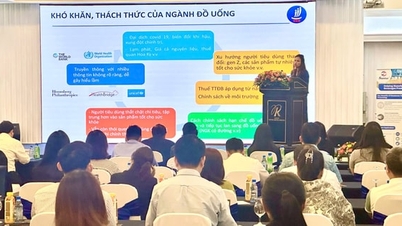

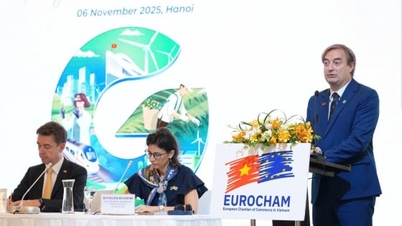

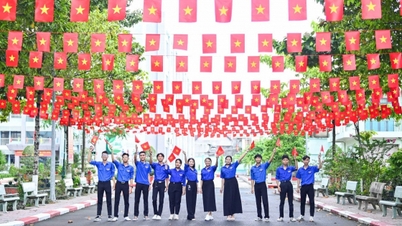
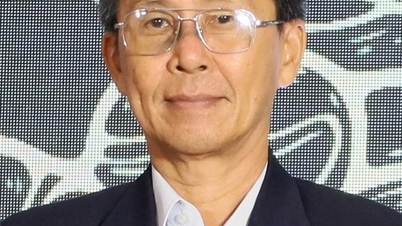

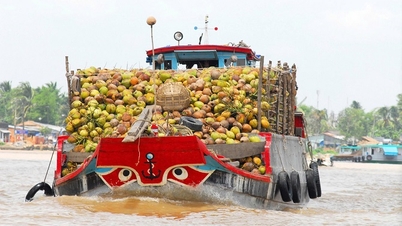



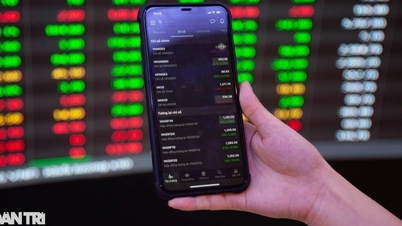
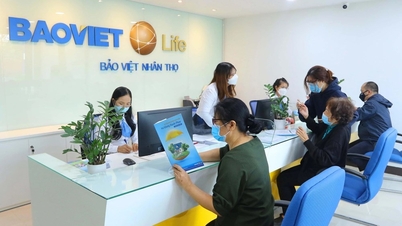

















































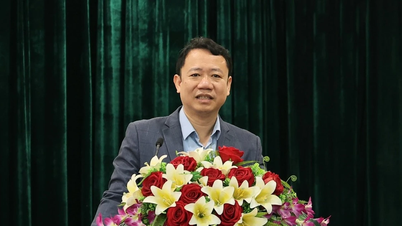
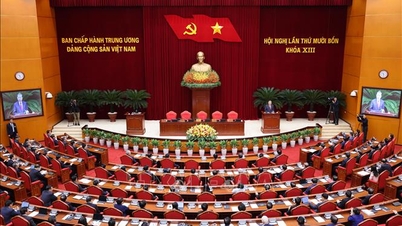


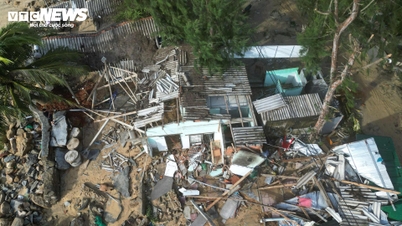




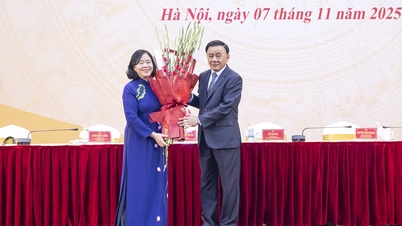


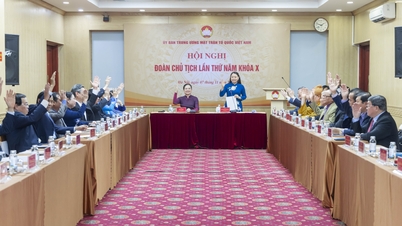



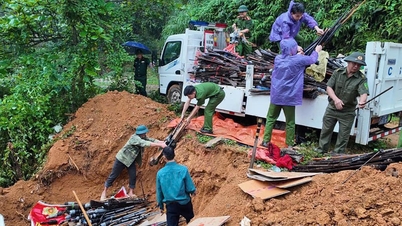

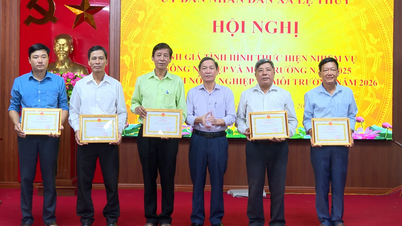















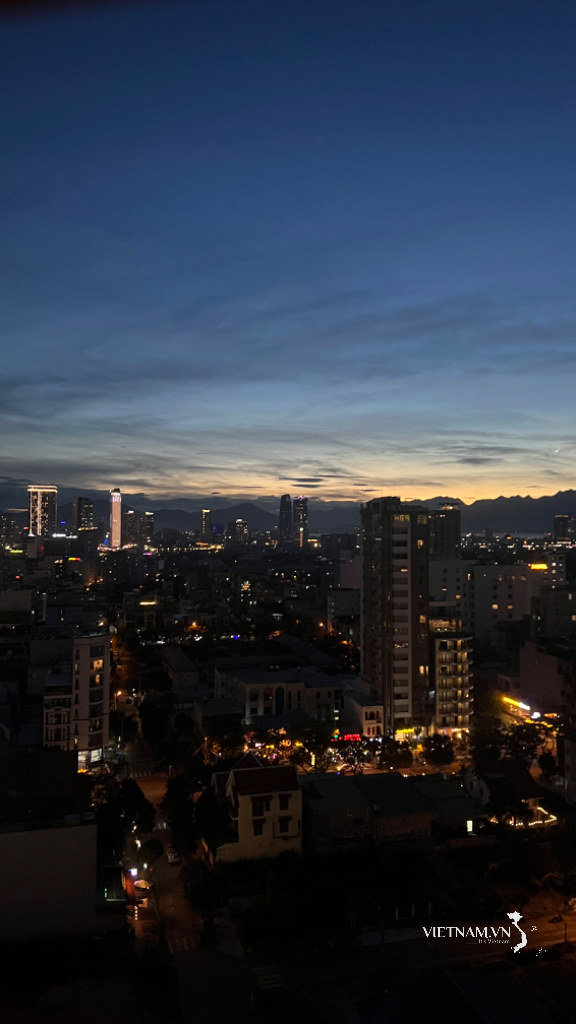



Comment (0)